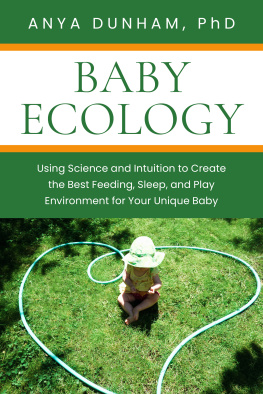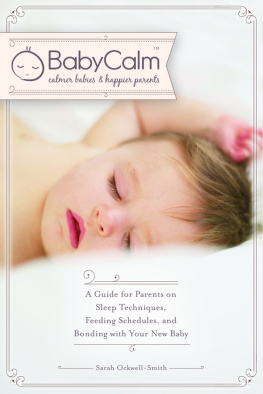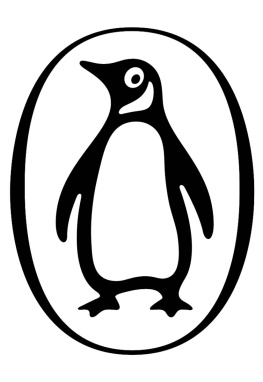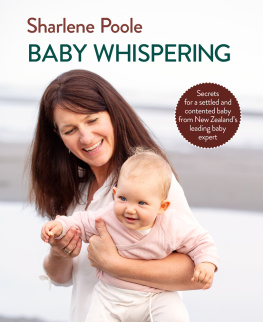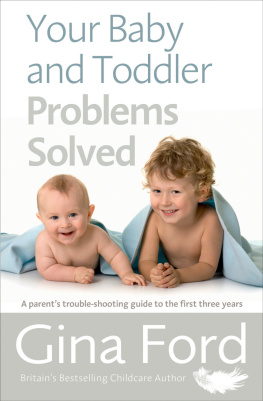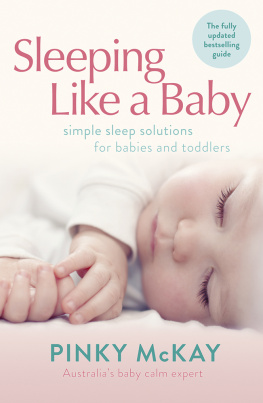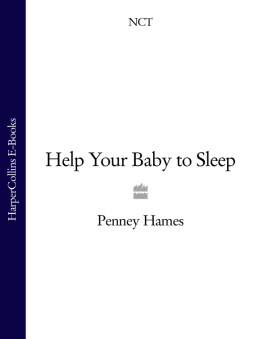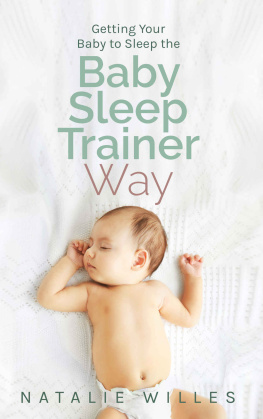

Using Science and Intuition to Create
the Best Feeding, Sleep, and Play
Environment for Your Unique Baby
ANYA DUNHAM, PhD
Baby Ecology: Using Science and Intuition to Create the Best Feeding, Sleep, and Play Environment for Your Unique Baby
2022, Anya Dunham, PhD. All rights reserved.
Published by Encradled Press, British Columbia, CANADA
ISBN 978-1-7778044-0-4 (paperback)
ISBN 978-1-7778044-1-1 (eBook)
Publishers Cataloging-In-Publication Data
(Prepared by The Donohue Group, Inc.)
Names: Dunham, A., author.
Title: Baby ecology : using science and intuition to create the best feeding, sleep, and play environment for your unique baby / Anya Dunham, PhD.
Description: British Columbia, Canada : Encradled Press, [2022] | Includes bibliographical references and index.
Identifiers: ISBN 9781777804404 (paperback) | ISBN 9781777804411 (ebook)
Subjects: LCSH: Infants--Care. | Human ecology.
Classification: LCC RJ61 .D86 2022 (print) | LCC RJ61 (ebook) | DDC 649.122--dc23
Without limiting the rights under copyright reserved above, no part of this publication may be reproduced, stored in or introduced into a retrieval system, or transmitted in any form or by any means (electronic, mechanical, photocopying, recording or otherwise whether now or hereafter known), without the prior written permission of both the copyright owner and the above publisher of this book.
This book is intended to provide accurate information with regard to its subject matter and reflects the perspective of the author. However, in times of rapid change, ensuring all information provided is comprehensive and up-to-date at all times is not always possible. Therefore, the author and publisher accept no responsibility for inaccuracies or omissions and specifically disclaim any liability, loss or risk, personal, professional or otherwise, which may be incurred as a consequence, directly or indirectly, of the use and/or application of any of the contents of this book.
Indexing by Under the Oaks Indexing
Publishing services provided by AuthorImprints.com
For the most amazing humansour babies
and for those who grow babies under, or in, their hearts
Ecology: a branch of biology that studies how living things relate to one another and interact with their environment.
Despite technological progress, baby ecologywhat our babies need from the physical spaces they live in, the care they receive, and their interactions with people in their lifehas remained constant and is universal.
CONTENTS
ABOUT THIS BOOK
LOOKING AT BABIES IN A DIFFERENT WAY
When I think back to my first year as a mom, I remember feeling love beyond any experience I had yet had. I was swept off my feet by my fierce need to nurture and protect our baby daughter, by her uniqueness and completeness but also by worry and doubt. I was ready for the sleepless nights, but not for how heavy the responsibility for a tiny person would feel. I wanted to become the best parent I could be. I read dozens of parenting books and browsed through countless online resources, but found myself in a sea of parenting trends promoting conflicting approaches to every aspect of baby care.
By the time my daughter was born I had a doctorate degree in biology and had spent twelve years doing biological research. So I went to the original sources of knowledge about babies: the scientific studies. I carefully read over eight hundred peer-reviewed publications on infant development, sleep, and feeding, and separated well-substantiated results from preliminary findings and speculations.
I found that science has accumulated a vast amount of knowledge on child development and the ways babies are raised around the world. Different cultures use different approaches they consider natural, and each family creates its own set of unique baby care practices. Imagine these family practices as dots; some are quite far apart and some are closer together, but none are exactly the same:

I also realized why there are so many conflicting approaches to baby care. Most scientific studies are designed to answer very specific questions in very specific settings. Their findings are not supposed to be applied beyond a particular situation or stage of development. Yet, sometimes scientific findings get misinterpreted in the media and then amplified by parenting trendsetters who take away select messages that fit their particular philosophy. They create strict parenting dos and donts that presume there is only one correct way. They offer parenting techniques aimed at a particular stage or challenge that often contradict what other experts promote in their own strict guidelines: sleep train at five months but never leave your baby to cry; start with purees but skip purees entirely; always babywear but do not restrict free movement. Many techniques come with a sense of pressure: Do this or else your baby will not thrive.
The problem is, no parenting trend works perfectly for everyone. Parents who choose to carefully follow one particular trend often discover that not all the recommended techniques work for their baby and family. If we add parenting trends to our map of family practices, they would look like this; some work for some families, but none work for all:

But what if we shift our perspective? What if we saw raising a baby not as a series of parenting techniques, but as an opportunity to nurture a whole person? What if we look at it from the babies perspective? What do babies really, truly need?
With this new frame of mind, I returned to the research, but this time went a step further. My scientific expertise is in ecology, a branch of biology that studies how living organisms relate to one another and interact with their environments. More specifically, I study habitats: spaces and environments that support life. And so I began to think about baby-care questions from an ecological perspective. Each baby has fundamental abilities and needs universal to all human babies, as well as his own unique traits. His environment consists of the physical spaces he lives in, the care he receives, and his interactions with the people in his life: everything that shapes his day-to-day experiences. In developmental psychology this immediate environment is called the microsystem.
I critically examined the scientific studies once again, but this time through the lens of ecology: baby ecology. I set out to find answers to these questions:
What are the fundamental, universal needs of all human babies?
What elements in babies environment help meet these needs?
What circumstances make meeting these needs difficult?
After I analyzed the scientific research from this new angle, it became very clear that there will never be one perfect parenting trend; there is not just one right way to raise a baby. However, there is a biologically optimal range that supports every babys unfolding natural abilities. This range is the Optimal Nurturing Environment, or the ONE for short.

Next page
